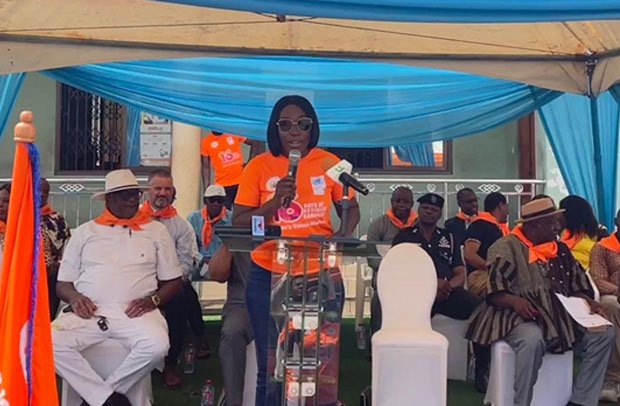The Ministry of Gender, Children and Social Protection (MOGCSP), in collaboration with the United Nations Population Fund (UNFPA), has launched the 2024 edition of the 16 Days of Activism Against Gender-Based Violence in Accra.
The launch began with a walk organised by the MOGCSP, UNFPA, and the United Nations Children’s Fund (UNICEF) under the theme, “30 Years After the Beijing Declaration and Platform for Action: Unite to End Violence Against Women and Girls in Ghana.”
Speaking at the event, the Minister for Gender, Children, and Social Protection, Dakoa Newman, indicated that despite global and national legal frameworks to protect women and girls, gender-based violence (GBV) remains a significant barrier to achieving gender equality in the country.
According to her, statistics from the 2016 Domestic Violence Survey reveal that 27.7% of Ghanaian women have experienced at least one form of domestic violence—physical, sexual, economic, or psychological.
She added that a 2017–2018 study found that 38.2% of adolescent girls aged 15–19 reported experiencing sexual violence.
The minister emphasised the urgent need for collective action, stating, “Gender-based violence not only violates the fundamental rights of survivors but also weakens our national developmental goals. Together, we must work to create a safe and equitable society for women and girls.”
She said to strengthen prevention, response, and reintegration support for abused women and girls, the ministry, in collaboration with UNFPA, has established the Orange Support Centre.
Dakoa Newman explained that the centre offers counseling, legal assistance, and medical support through its toll-free helpline (0800 111222), adding that to date, the centre has handled 718 cases, successfully resolving 547, with 171 still ongoing.
She disclosed that the ministry had trained over 180 market executives as paralegals in six markets across Accra and four regions—Bono East, Northern, Western, and Volta.
It has also equipped 105 service providers to support survivors of violence, she added.
The minister said the refurbished Domestic Violence Shelter in Accra is set to reopen by the end of 2024 to offer a safe haven for survivors.
Meanwhile, Ms. Newman said the operationalised Domestic Violence Fund is expanding services, with the ministry seeking additional donations to enhance support.
According to her, as part of the campaign, the ministry plans to conduct community sensitisation activities in the Central, Eastern, and Greater Accra Regions.
It will also participate in UNFPA-led programmes to amplify the message of unity and action, she stated.
Declaring the campaign officially launched, the minister called for collective responsibility, stating that “ending violence against women and girls is possible when we unite to dismantle barriers that perpetuate inequality and discrimination. Let us commit to promoting the safety, dignity, and empowerment of women and girls in Ghana.”
By Ransford Wletsu


